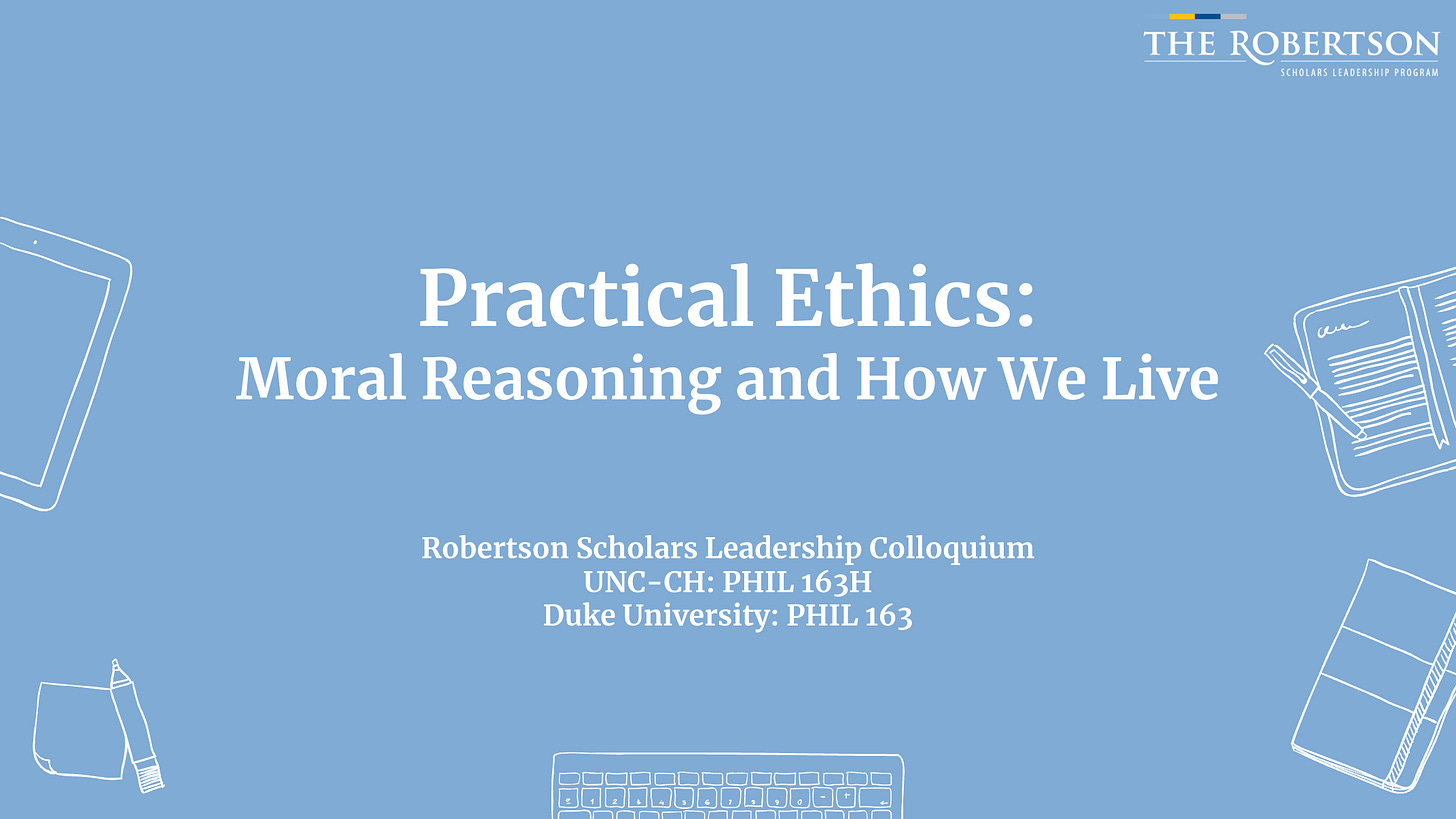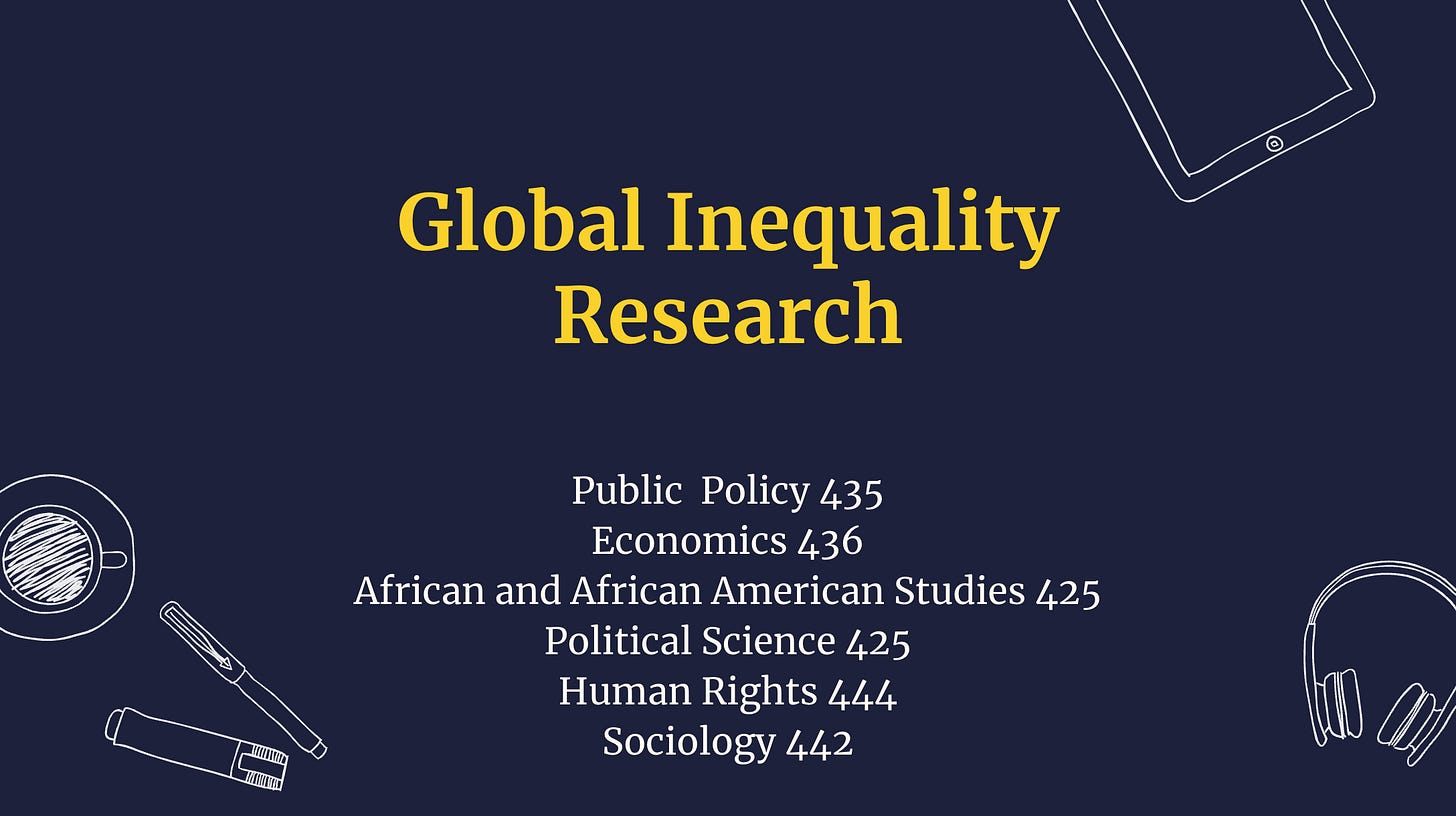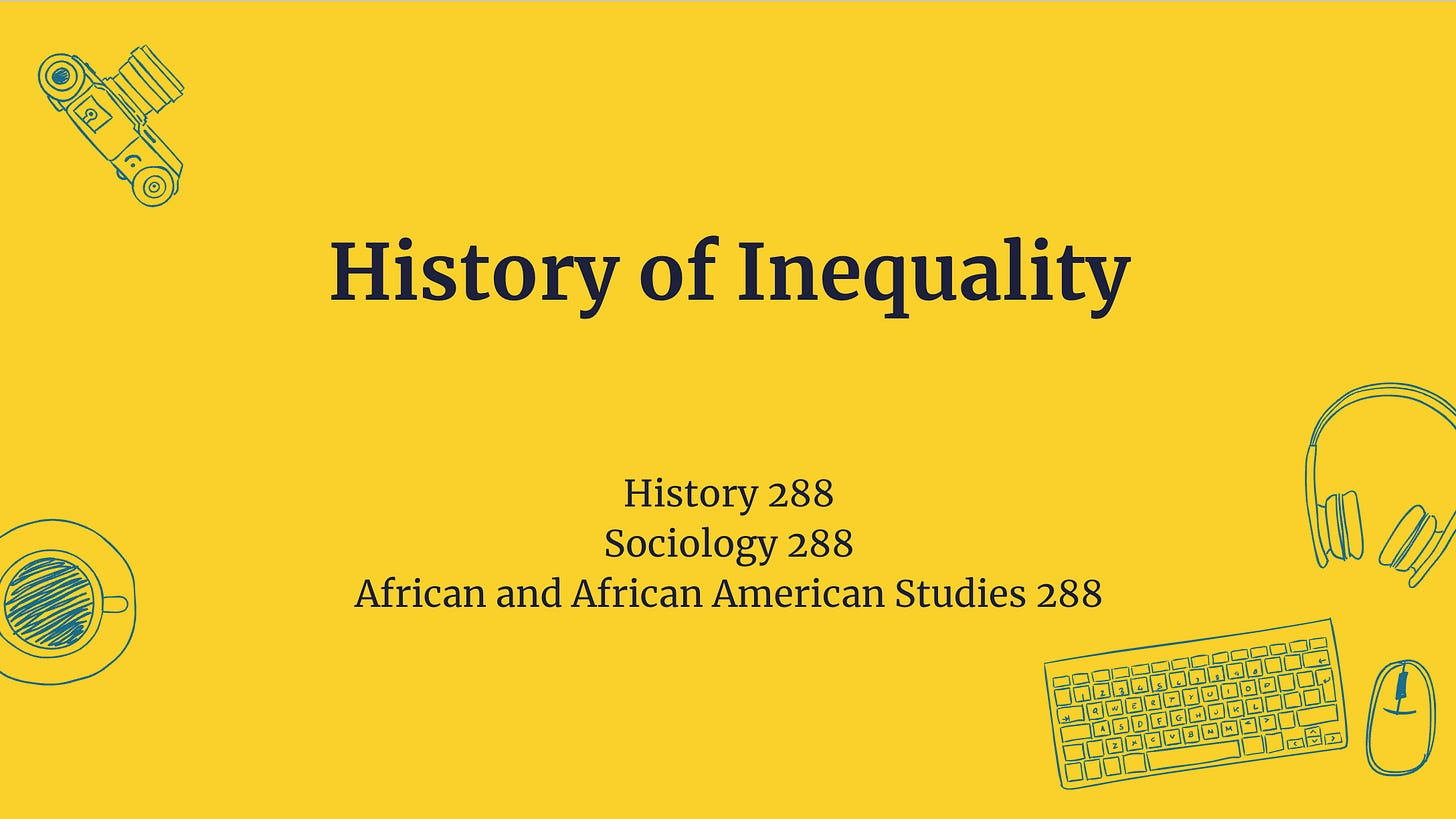What Do You Teach? (Part Two)
Notes on three more courses I teach and why I teach them.
Welcome to From the Ethics Desk! Share this post, support this publication, or learn more about me, Adam Hollowell. Thanks for reading. I’m glad you’re here!
“What do you teach?”
I answered this question a few months ago in Part One, and today I’m answering it again in Part Two.
As I wrote then, my answer to “What do you teach?” can vary pretty widely from semester to semester. So widely, in fact, that I’m teaching a history independent study this semester called “The Past, Present, and Future of Duke’s Blue Devil Mascot.” (But I can’t tell you who’s enrolled—it’s a secret.)
That course is a story for another day. In the meantime, here are three more courses I teach and why I teach them.
Practical Ethics: Moral Reasoning and How We Live (University of North Carolina at Chapel Hill, PHIL 163H; Duke University, PHIL 163)
Background: You might be surprised to see a lighter shade of blue in this Blue Devil’s newsletter. I became an adjunct teaching assistant professor in UNC’s philosophy department three years ago when I began teaching a course for the Robertson Scholars Leadership Program. Robertson Scholars, who attend both Duke and UNC, take a required course together as first-year students. For the past two years I have co-taught the course with the wonderful Sydney Echols, who directs Leadership Development for the program.
Course Description: This course explores practical moral philosophy as an essential resource for navigating an unjust world, the choices we make within it, and collective possibilities for a better future. The course examines philosophical frameworks for understanding moral behavior, including Kantian deontology, classical utilitarianism, and Aristotle’s virtue ethics, as well as nontraditional approaches such as emergent ethics, solidarity, and accompaniment ethics. (For a funny primer on ethics—yes, I said funny—try comedian Mike Schur’s How to Be Perfect: The Correct Answer to Every Moral Question. I assign it in this class.) The course also highlights three core commitments of the Robertson Scholars—leadership, integrity, and community—as students engage in practical ethics, including moral reasoning, critical reflection, collective decision-making, and practical application.
Course Objectives:
Participate in respectful, critical, and reflexive dialogues about difficult philosophical positions.
Evaluate ethical justifications for different ways of organizing civic and political communities.
Explore, interpret, and apply core values of the Robertson Scholars Leadership Program: leadership, integrity, and community.
Collaborate in groups to learn, design, solve, create, and research practical ethical challenges and responses.
Why I teach it: The summer after my first year of college, Duke paid for me to spend three months in Wilmington, North Carolina working at the Boys and Girls Club as a part of the B.N. Duke Scholarship. The Robertson Scholars have a similar program called “Community Summer” that places students in the Mississippi Delta, Eastern North Carolina, the Appalachian region of Kentucky, or New Orleans. This course is an essential part of their preparation for Community Summer, and I love the opportunity to encourage students to think about ethics, power, service, and leadership before they embark. I wish I’d had a course like this before my summer in Wilmington.
Global Inequality Research (PUBPOL 435; ECON 436; AAAS 425; POLISCI 425; RIGHTS 444; SOCIO 442)
Background: In January 2013 Duke announced a new program called Bass Connections that would promote interdisciplinary learning around five themes: brain and society; education and human development; energy; global health; and, information, society and culture. The team at the Cook Center, where I now work, requested that inequality be among the five themes, and although it wasn’t selected, the university provided funding to launch the Global Inequality Research Initiative (GIRI) in 2014. (As it happens, the university added a Bass Connections team on Race, Identity, and Inequality in 2021.) Ten years later, GIRI is still going strong.
Course Description: Global Inequality Research is an interdisciplinary, vertically integrated research course open to undergraduate, graduate and professional students that emphasizes application of mixed methods from the social sciences and humanities, including quantitative, qualitative, and archival research. Cross-listed in multiple departments, the course facilitates integrated study and research across fields of social, historical, and political inequality. Each semester is organized around a specific theme within global inequality, and past themes have included social determinants of health, disability justice, athletes and activism, and environmental justice. This course serves as the capstone for the Inequality Studies minor.
Course Objectives:
Immerse students in open-ended study and research around issues of global inequality.
Familiarize students with advanced social scientific and humanities research methods in the study of inequality.
Facilitate novel student research related to global inequality. Students complete a major research paper that could qualify for submission to a refereed journal in a relevant academic discipline.
Why I teach it: I have taught Global Inequality Research nearly every semester for seven years, and it’s never been the same twice. While the course requires a lot of effort, I love it because I regularly have co-instructors who offer incredible insights into inequality, research, and transformation. This course is how I met friends and collaborators like Keisha Bentley-Edwards, Quran Karriem, and Solomon Hughes. I feel lucky just to be a part of it.
History of Inequality (HIST 488; SOCIO 288; AAAS 288)
Background: As I mentioned in What Do You Teach? (Part One), in 2020 the Cook Center and the History Department created Duke’s new Inequality Studies minor. I organized this effort and, in 2021, designed and taught two new minor courses, one of which was History of Inequality.
Course Description: This course familiarizes students with the field of Inequality Studies through examination of the causes and consequences of social inequality throughout history. It addresses theories of group and sub-group social stratification and ways that disparity operates across multiple axes of stigmatized identities. Students explore historical and comparative research on socioeconomic inequality across societies, cultures, and institutions, with topics including wealth, labor, education, health, race, gender, disability, sexuality, political economy, and globalization.
Course Objectives:
Introduce students to the causes and consequences of socioeconomic inequality throughout history.
Explore observations and interpretations of inequality across social, political, and cultural settings and structures.
Apply basic methods of study and research in the emerging field of Inequality Studies.
Why I teach it: Like many others, I’m fascinated by the work of historians and scholars who describe how inequality works and offer theories to explain its persistence as a recurring feature of human societies. (For instance, we’ll read sections of Thomas Piketty’s A Brief History of Equality, Yuen Yuen Ang’s How China Escaped the Poverty Trap, and Destin Jenkins and Justin Leroy’s Histories of Racial Capitalism over just a few weeks of the semester.) It’s also important for students to learn from direct accounts of people on the “underside” of inequality. (For example, in Lisa Gray-Garcia’s Poverty Scholarship and Matthew Desmond’s Evicted.) There’s always too much to cover—but that’s a welcome challenge. The hard part, every semester, is narrowing the assigned reading to a reasonable amount.







